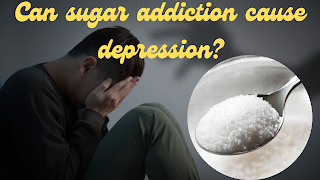What is the addictive behavior?

An addictive behavior is a behavior, or a stimulus related to a behavior (e.g., sex or food), that is both rewarding and reinforcing, and is associated with the development of an addiction. Some of the most common types of behavioral addictions are: · Sex. · Gambling. · Internet. · Shopping. · Video games. · Plasticsurgery . · Binge eating/food addiction. · Thrill-seeking activities. Addictive behavior is defined by compulsive drug use despite negative physical and social consequences and the craving for effects other than pain relief . The addiction components model operationally defines addictive activity as any behavior that features what I believe are the six core components of addiction (i.e., salience, mood modification, tolerance, withdrawal symptoms, conflict, and relapse) .
.png)
